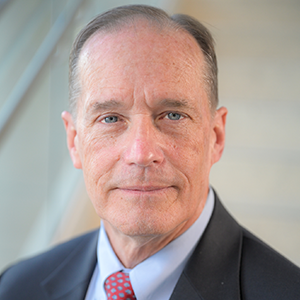Research Computing Office
Science is now a fully digital enterprise, with exponentially increasing scientific data; more powerful computational capabilities; revolutionary analytical modalities, including AI; and increasing regulatory and security concerns. Success in research computing is central to the research mission, strategy and operations as UMass Chan continues to grow.
The Research Computing Office was established to meet the needs of researchers in addressing challenges in a rapidly changing research environment.
The office works to ensure that our research community, including scientific labs and core facilities, have scalable, facile, secure and sustainable computational and data resources that anticipate the needs of our scientists.
The Research Computing Office is at the intersection of science, strategic planning and organizational excellence and works to ensure that UMass Chan can achieve its science objectives and prepare for the future. We fulfill this mission through listening, thoughtful planning, and strong partnerships across the research community, information technology, administration, sponsors and external partners.
Research Computing Office resources
The Research Computing Office has launched an Intranet site that has tools and resources for:
- Protein structure prediction
- Guidance, including the NIH Genomic Data Sharing Policy updates
- Trainings, such as for AlphaFold and the R Café
Please provide feedback by emailing us here.
Interested in protein structure prediction using AlphaFold? Sign up for our workshop on April 29.
Who we are
William Barnett, PhD, is the inaugural chief research computing officer at UMass Chan. He has an extensive background in research computing, including strategic planning, governance and institutional leadership; high performance computing; biomedical research; instrument-generated research; research with regulated data; research databases; research software; and information systems security.
Dr. Barnett came to UMass Chan from Harvard Medical School, where he oversaw the research computing group, supporting their extensive research mission, and partnering across Harvard on strategic and collaborative research computing initiatives. Previously he was at Indiana University and the Indiana University School of Medicine, providing high performance computing applications, technical support for clinical trials recruitment and management, and serving as the CIO of the precision medicine initiative. Read more about Dr. Barnett.

Jared Vessella-Smith is a bioinformatician with experience as a full-stack software engineer. With expertise in many different languages and frameworks, Jared has developed custom software solutions for research laboratories and biotechnology companies. His experience at Harvard University includes building applications and APIs to support laboratory workflows, while his tenure at Epivax saw him leading tumor vaccine pipeline development and creating web-based bioinformatics tools for large biotech firms. Currently pursuing a master's in biotechnology/bioinformatics at Harvard University, Jared excels in bridging the gap between computational research and practical implementation, ensuring that software solutions align with scientific objectives. His background in biological research and computer science further enhances his ability to support complex research computing initiatives here at UMass Chan.
What we do
Partnership with the research mission
We participate with faculty and the research and informatics communities (specifically the chief research informatics officer) to identify opportunities to advance the research mission through computational and data services, resources and facilities.
Enabling research services
We work with researchers, experts and core facilities, and IT to bring research computing tools and services to the research community, lower the barrier of use, and provide training and guidance.
Collaboration with administration and service organizations
We collaborate closely with IT, the Lamar Soutter Library and UMass Chan administration to optimize and align research computing and data services to advance the research mission.
Strategic Planning
We are creating the first strategic plan for research computing, an integral part of the IMPACT 2030 institutional strategic plan.
Basic Science IT Subcommittee
Dr. Barnett co-chairs, with Job Dekker, PhD, Howard Hughes Medical Institute Investigator, the Joseph J. Byrne Chair in Biomedical Research, and professor of systems biology, the Basic Science IT Subcommittee, which advises the institutional IT Committee on IT matters pertaining to the basic science research mission at UMass Chan.

